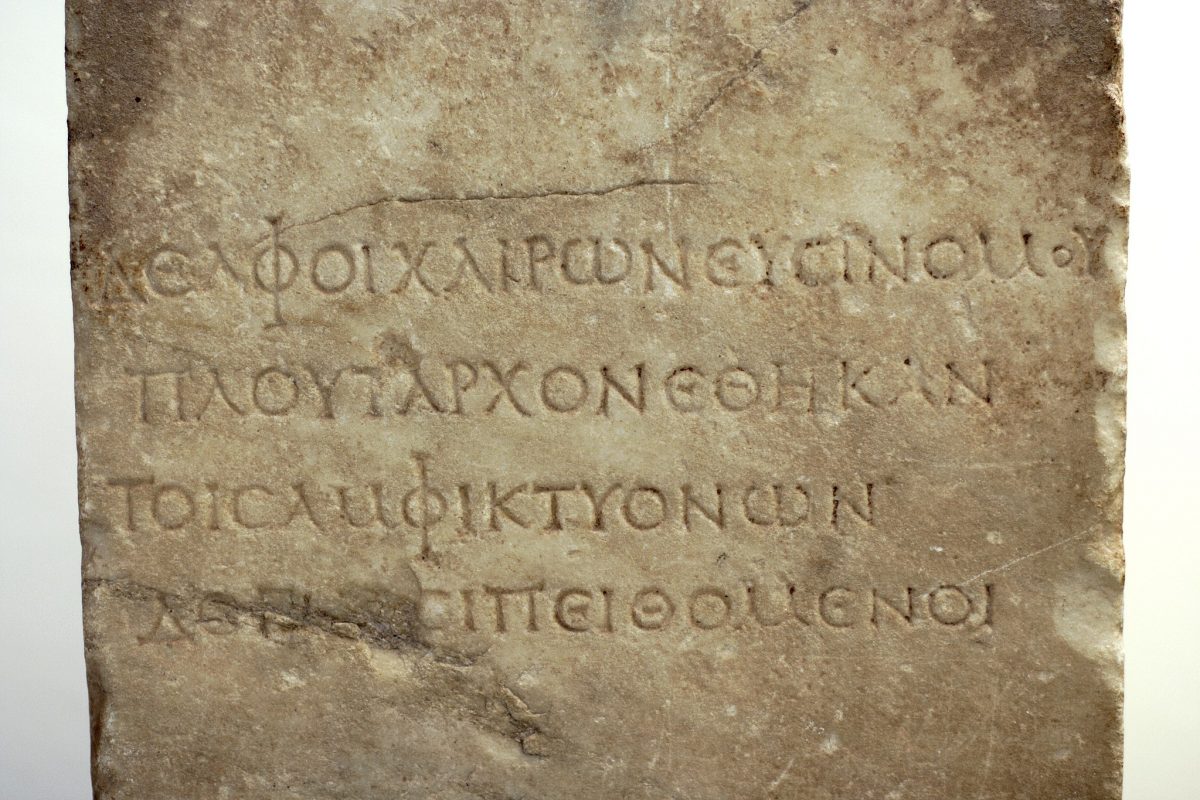The project aims at examining the conceptual metaphors related to cognition in the corpus of Plutarch’s Moralia and Lives in order to better understand various aspects of social life in antiquity. Cognition is here an umbrella term that encompasses a wide range of intersubjective mental states, processes and activities such as acquiring knowledge, having beliefs, understanding, or memorizing. Both conventional and literary metaphors will be identified in Plutarch’s writings and surveyed regarding how the aforementioned categories of thinking were conceptualized. Cognitive models of various mental capacities reconstructed from linguistic evidence are regarded as representing an ancient folk epistemology and theory of mind. In any society, these types of cognitive models are essential to understand many social phenomena such as the model of education, the concept of responsibility and justice or the perception of mental illness.
Culture is not only a source of metaphors, but it is also shaped by the metaphors used in it. How a human being is conceptualized in a community is thus reflected in the organization of an ancient Greek society and vice versa. A reconstruction of the full spectrum of conceptual metaphors of cognition in Plutarchan texts will allow us to establish cognitive models of the ancient concept of human mind and to draw its implications for social life. The project will address the following issues: the conceptual patterns traceable in Plutarch’s corpus; the coherence of its metaphorical system; the level of conventionality vs. originality of Plutarch’s metaphors; the purposes and functions of these metaphors; the comprehensibility of the metaphors to the modern man; the cultural underpinnings of the conceptual systems in Plutarch (social institutions, beliefs, values, theories, and practices). The project uses methods developed in a new heuristic model labeled cognitive history that combines historical research and theories of cognitive science. The studies will be based on cognitive linguistics, corpus analysis, and historical analysis that will be used as tools for reconstructing of ancient mentality and its interplay with the socio-cultural environment. Qualitative research on the ancient understanding of the human mind will be informed by quantitative research conducted on an appropriately designed corpus of metaphors of cognition in Plutarch.
The project focuses on Plutarch’s work as a crucial source for understanding ancient Greek mentality. Plutarch’s output, which is one of the largest and most diversified ancient corpus of a single author, exerted a great impact on his own times and on subsequent eras. Since this author was particularly predestined to the metaphorical language, there are many studies of this issue; very few works, however, approach it in a comparably systematic way. A serious shortcoming in much of them is their dependence on isolated examples and strong reliance on introspective data. Likewise, the large ensemble of ideas that may be classified as cognition has not been studied as a whole on the grounds of Greek ancient literature with the use of cognitive linguistics methodologies. Yet there is a substantial body of research on the role played by metaphor in the formation of ancient Greek emotional concepts. Given the belief formed in modernity that the human mind is split into two independent domains of emotion and cognition, it is surprising that the latter is overlooked in research based on cognitive metaphor theory. The aim of this project is thus to fill this significant scholarly gap and provide a systematic and coherent study of the metaphorical concepts related to cognition in one of the most important ancient authors. Furthermore, one of the project’s highlights is that it will study the Moralia alongside with the Lives while these two groups have been as a rule studied separately.
This interdisciplinary enterprise has a potential to be of interest for scholars of various disciplines, as it is set at the intersection of linguistic, literary, historical, philosophical, and computational studies that will be conducted by a team of experts. The outcome of the studies on the conceptual systems structuring the Greek models of cognition and their cultural underpinnings will be presented at international conferences and seminars and published as articles in leading international peer-reviewed periodicals, as well as a volume submitted to a respected publishing house.
